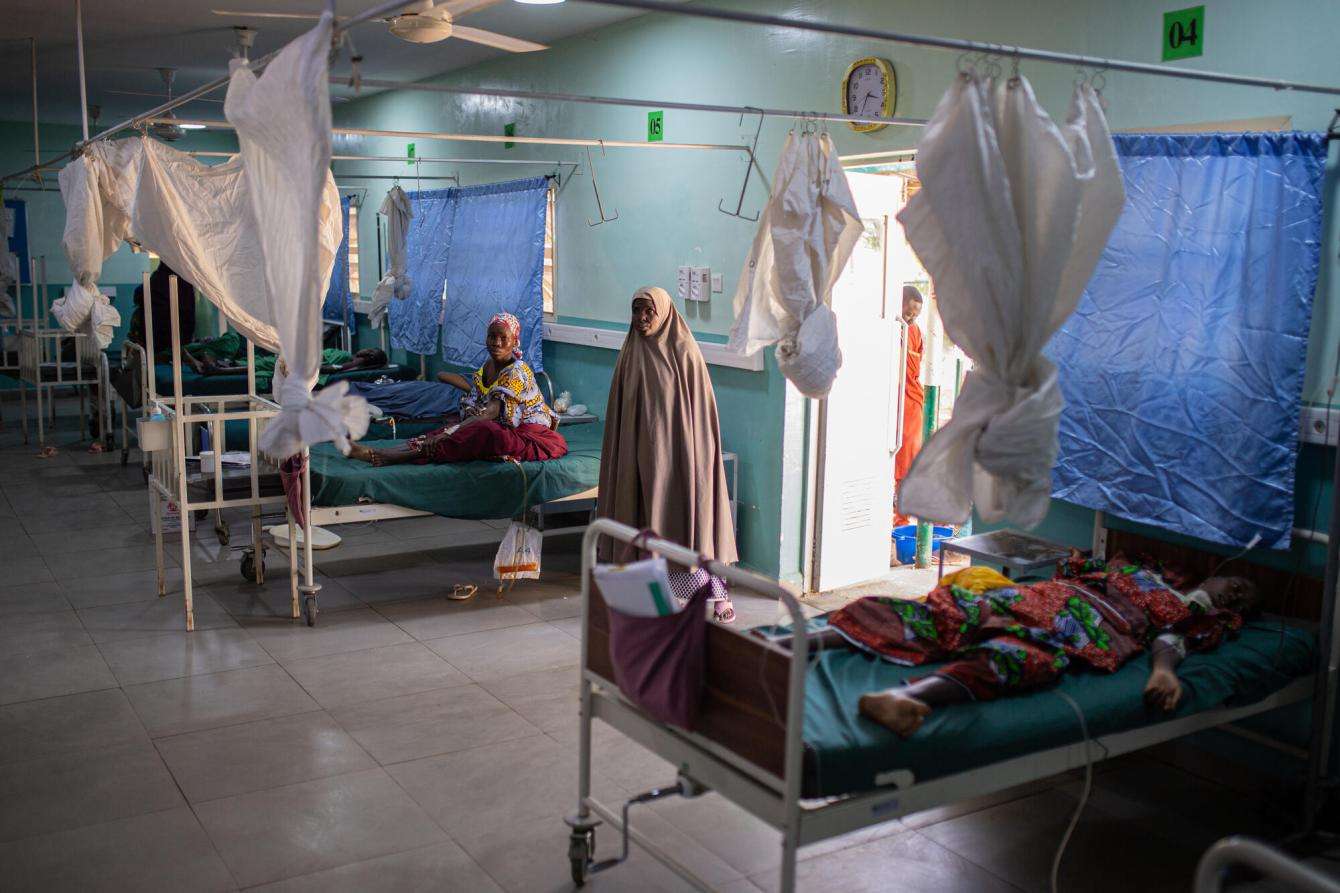Obstetric fistula occurs when a hole develops between the vagina and the bladder and/or rectum, and is often caused by obstructed or very long labor. Fistulas cause urine or stool to leak from the vagina, causing discomfort and embarrassment that severely impact women’s quality of life.
The risk of complicated childbirth, and therefore of fistulas, is increased when a woman's pelvis is too small to allow the baby to pass through. This can happen when girls who are younger than 15 become pregnant, or when the woman giving birth suffered from malnutrition and stunted growth in childhood.
Fistulas can also lead to complications such as infection or infertility. The incontinence they cause women is often the pretext for societal stigmatization and exclusion and even divorce from their husbands. It can be the cause of psychological disorders such as depression.

A haven of respite and hope
The 55-bed fistula ward at the MSF-supported Jahun General Hospital is a place of respite for patients who undergo between two and three months of hospitalization.
Fistulas are not common in high-resource areas where cesarean sections and other interventions are readily available. However, in an obstructed labor in Nigeria, ”the baby could be stuck for several days,” explains Clémence Chbat, medical referent for women's health at MSF. “The prolonged pressure of the baby’s head on the woman's pelvis creates necrosis, which is the origin of obstetric fistula.”
“The fistula unit is a place where women can talk about what they're going through,” explains Chbat. “Because they have experienced the same difficulties, they form a special relationship. Together, they do their best to heal from their wounds. It's a place where you can see a lot of hope.”
Each patient may require one or more reconstructive surgical procedures to repair the fistula. Since 2024, MSF has complemented this care by setting up women's health rehabilitation activities and training local physiotherapists. “We teach women to regain control of their bodily functions, to control their urination and bowel movements, and consequently restore their dignity,” explains Elizabeth Braga, physiotherapist with the MSF Foundation. “It's an essential step towards recovery.”
Once a week, the residents also organize “Happy Wednesdays,” a day dedicated to making handicrafts, singing, or playing games to make them feel strong and independent again.

Systemic change is needed to eradicate fistula
In addition to individual action, the fight to eradicate fistula must involve ensuring that women have access to well-equipped health structures and trained professionals during pregnancy and childbirth. This can only happen if there is political will, community commitment, and sustainable investment in women's health.
“We need to raise awareness among those concerned—mainly women who are about to give birth, but also their husbands, mothers-in-law, birth attendants and religious leaders—of the issue of safe childbirth and the need for rapid access to care in the event of complications, no later than after 24 hours of labor, ” explains Chbat. “We also advise them to set aside the necessary funds in advance to pay for transport to the nearest hospital, as this unfortunately remains a real obstacle for many women.”




